The CTS//circle.responsibleComputing recently hosted the first talk in their new brown bag seminar series, “Exploring the Frontiers of Responsible Computing.” You can watch a recording of the talk on YouTube
About the speaker
Kevin Blasiak joined the CTS and TU Wien as a Postdoc in October 2023 after completing his PhD at the University of Queensland in Brisbane, Australia. His thesis, “Countering Extremism on Social Media: An Exploratory Sequential Mixed Method Study of Online Extremism Countermeasures,” focused on understanding online extremism and strategies for addressing it on social media platforms. His research includes the study of online extremism and the responsible use of technology (i.e. trust & safety, algorithmic content moderation)to combat it. His work has been presented at conferences such as the International Conference on Information Systems and published in the Information Systems Journal. Blasiak is currently leading the CTS//circle.responsibleComputing.

Seminar notes
Our first speaker from the CTS//circle.responsibleComputing introduced key responsible Computing principles (i.e., Sustainability, Participation, Functionality, data Privacy, Transparency, Fairness, Norms & Values, Accountability) (Trier et al. 2024). Moreover, Kevin offered an outlook into what responsible computing entails and the different stakeholders that are involved (Society, Individuals, Corporations).
Please find some of the contents presented during the seminar below:
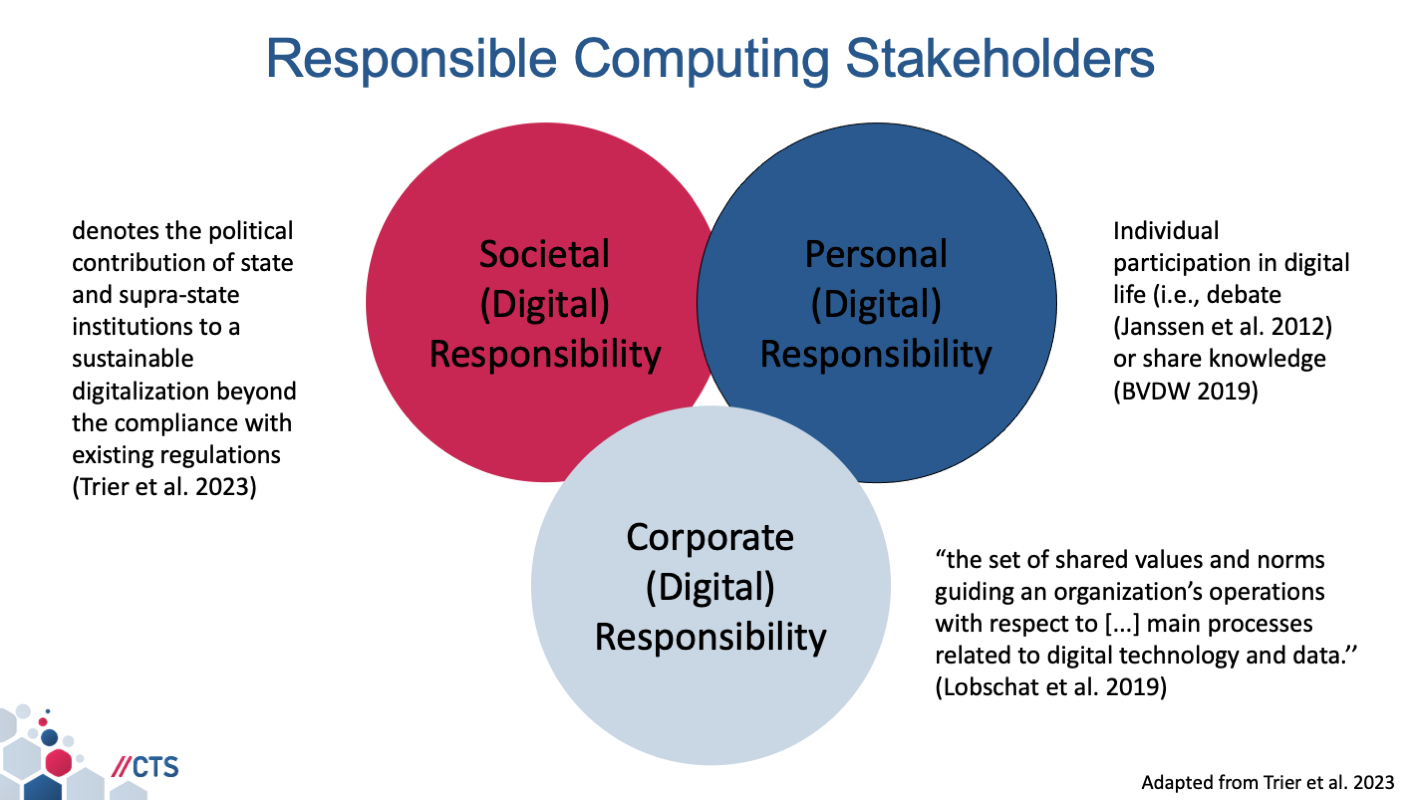
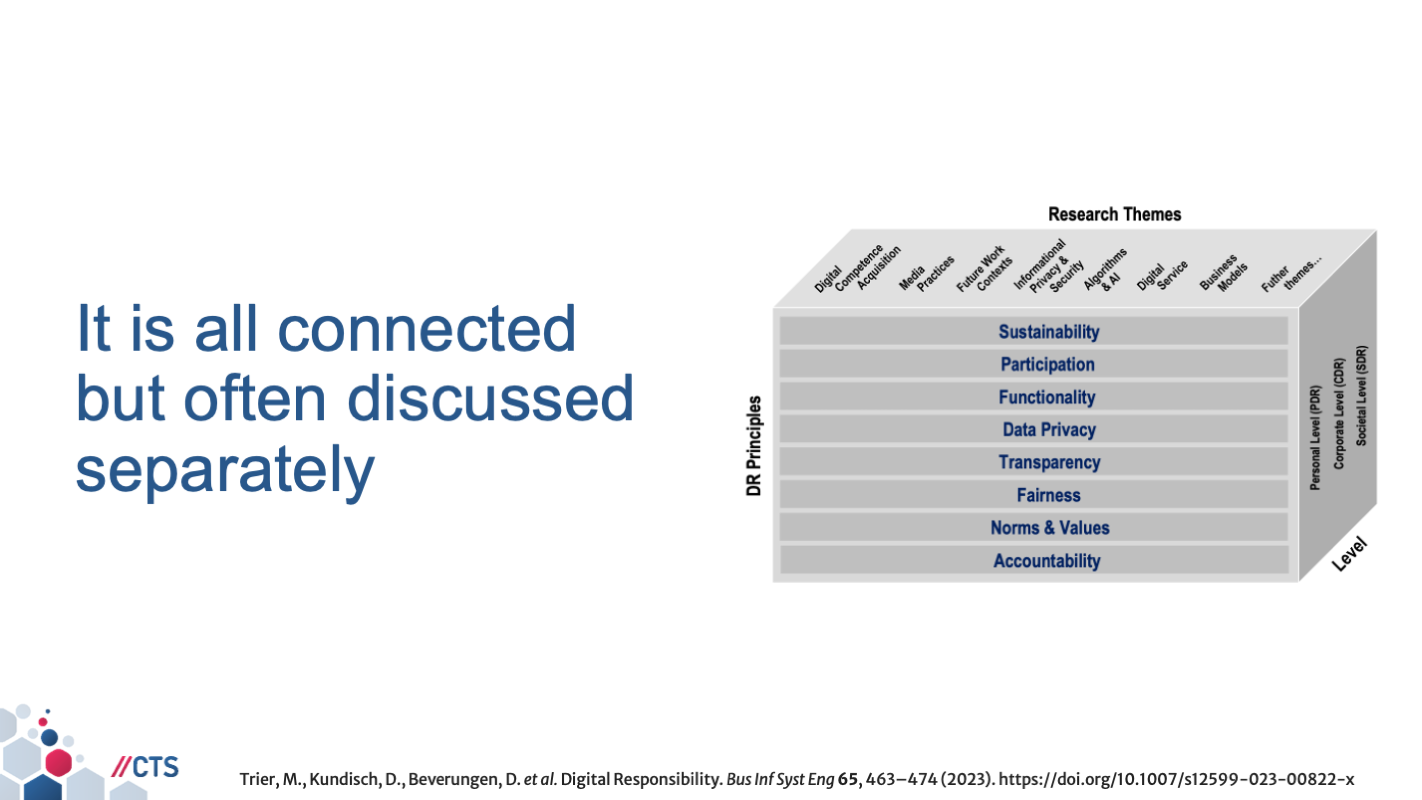
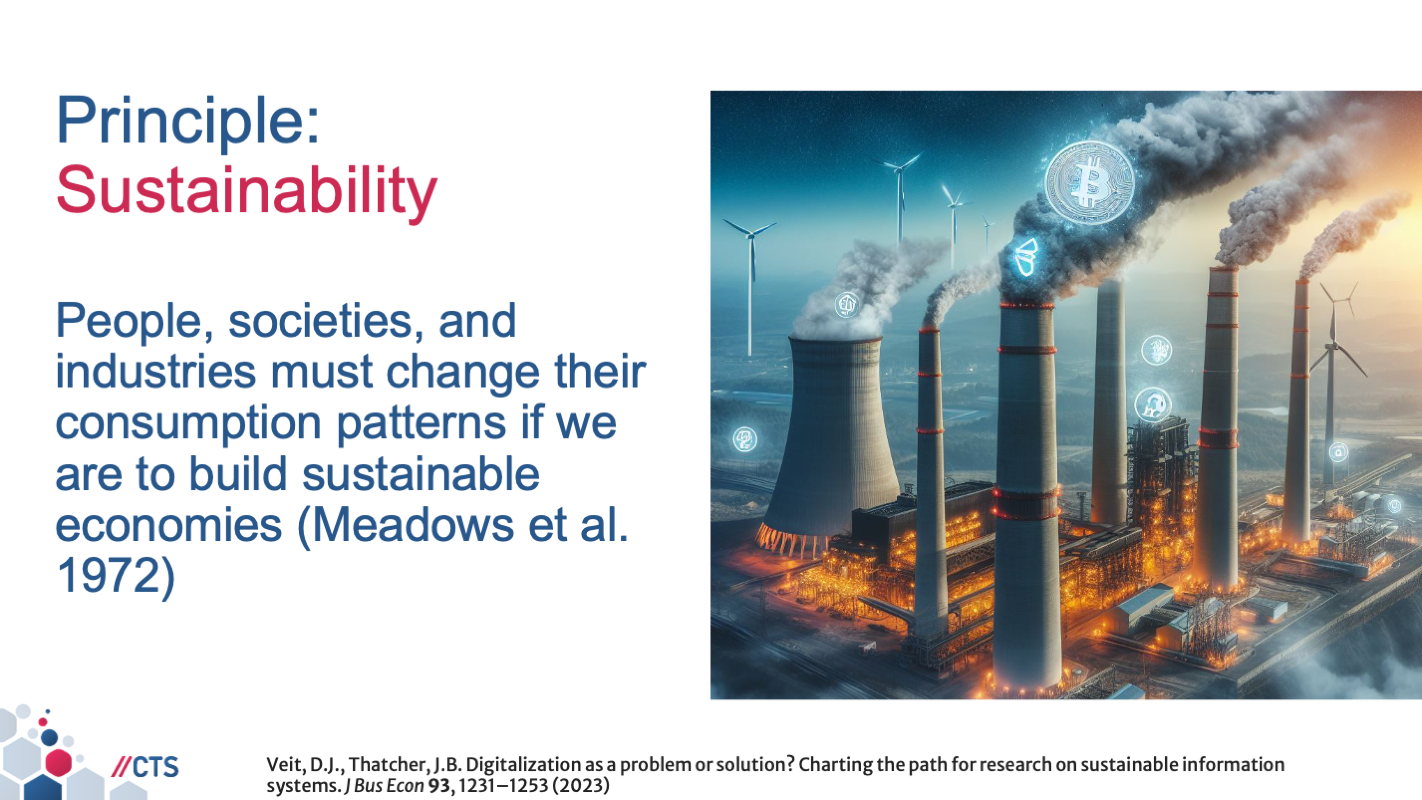
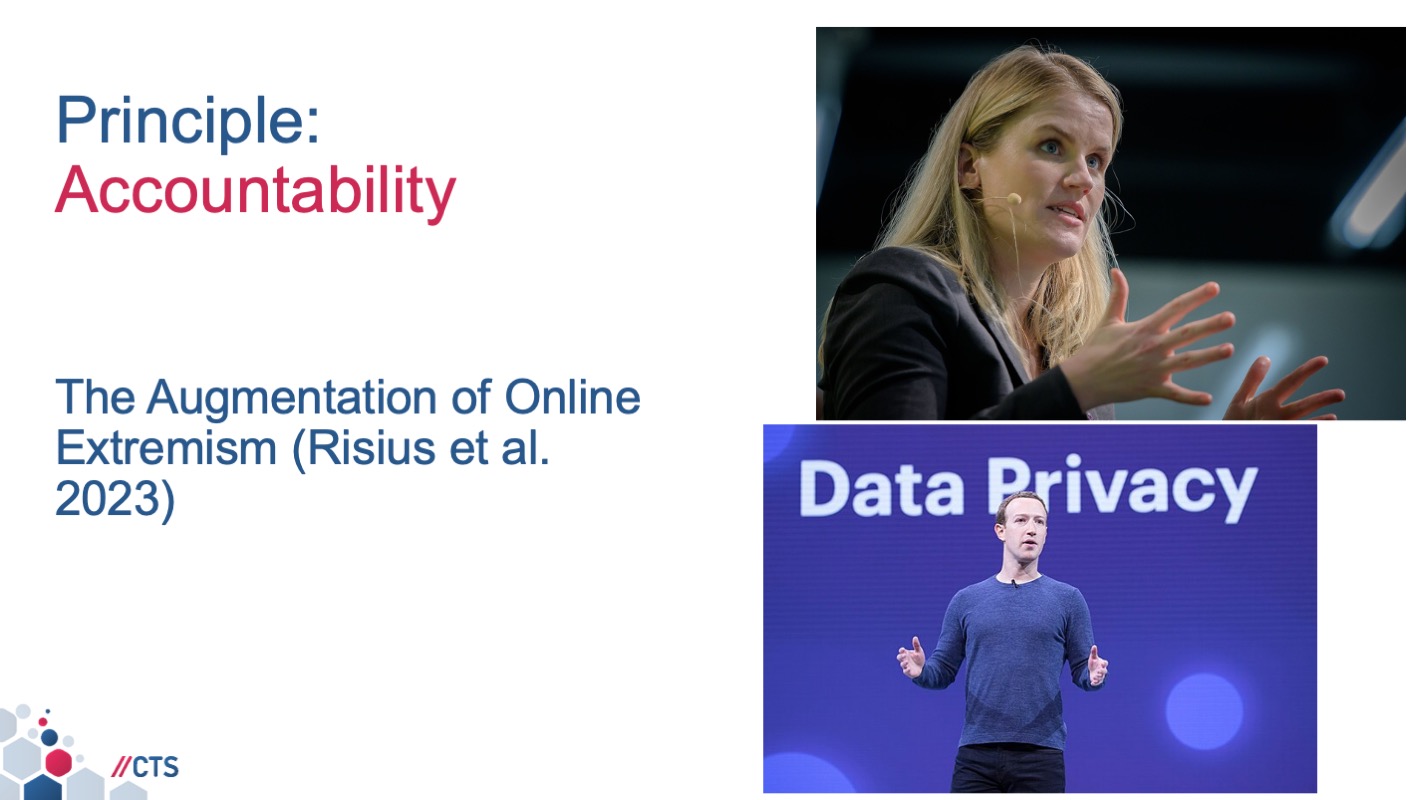
The key problem that responsible computing aims to address is the ethical and equitable development and deployment of technology. This involves ensuring that technological innovations respect human rights, protect privacy, promote fairness, and prevent harm to individuals and society. Responsible computing seeks to mitigate the negative consequences of technology, such as bias, misinformation, and privacy violations, while fostering sustainability and accountability in the use of digital systems and platforms. By focusing on these issues, responsible computing strives to create a more just and inclusive technological landscape for all stakeholders.
Responsible computing encompasses three primary stakeholders: individuals, corporations, and society (including civil society and governments). It offers a holistic approach to evaluating and understanding the interactions between key principles, stakeholders, and research themes. Sustainability is a central focus within responsible computing due to its global impact. Additionally, accountability is a significant concern, particularly regarding social media platforms and the algorithmic distribution of extremist content and online radicalization. Future directions in responsible computing involve enhancing sustainability and accountability to create ethical and equitable technological advancements.
Upcoming seminar
- Co-Creation and Participation of Citizens in Urban Planning
- Prof. Hilda Tellioğlu
- 16. May 2024 12:00 - 13:00
- TU Wien: Gußhausstraße 27 - 29, 1040 Vienna (Room: CA0335) and online on YouTube
Abstract: Our emphasis is on examining critical topics rooted in the concepts and methodologies of CSCW (Computer Supported Cooperative Work) and PD (Participatory Design), particularly in relation to engagement, participation, and consensus formation within technology-aided co-creation processes in urban planning. Focusing on spatial and urban planning practices, we aim to explore various participatory and co-creation methodologies across different disciplines.
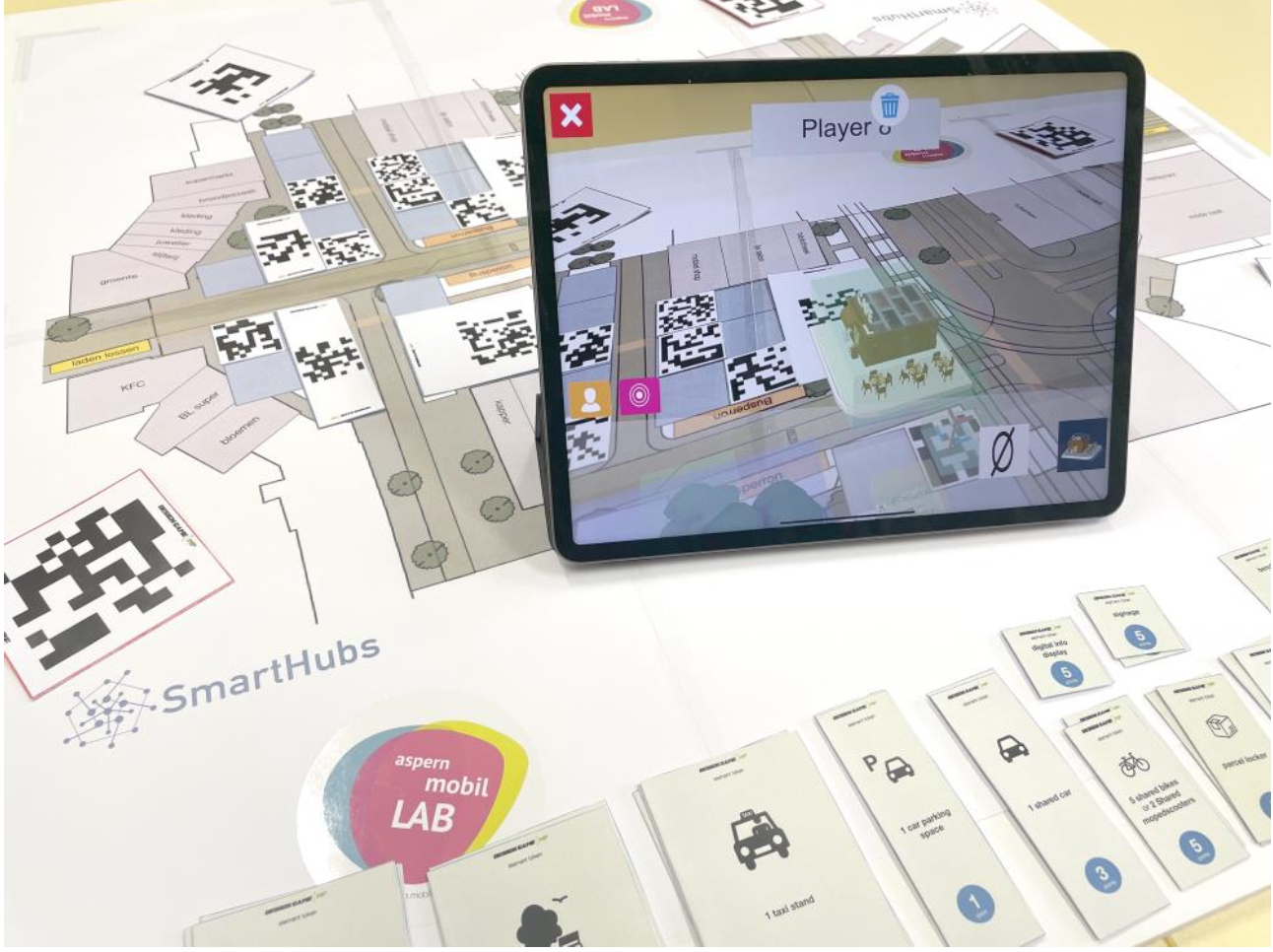
Further seminar dates for 2024 will be announced at a later time.
Organizer
CTS//circle.responsibleComputing
References
Trier, M., Kundisch, D., Beverungen, D. et al. Digital Responsibility. Bus Inf Syst Eng 65, 463–474 (2023). https://doi.org/10.1007/s12599-023-00822-x